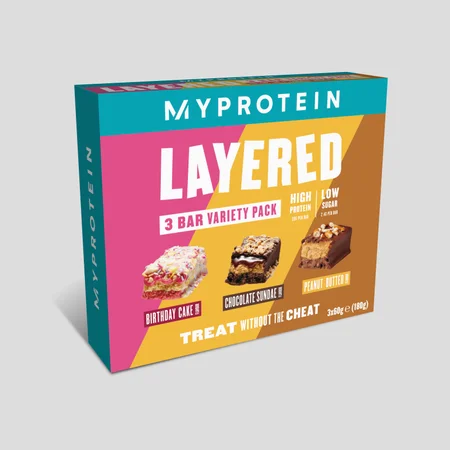
What you do doesn’t necessarily have to be that complex when it comes to managing your weight, health and or performance. It’s the “why” you’re doing it and “where” that’s coming from which are ultimately all the more important.
And yet, another fad diet has introduced an overly complicated and potentially dangerous approach to eating habits. It’s called intuitive fasting — here’s what you need to know.
Wait a minute, this sounds familiar…
You may be thinking “hold on a minute, intuitive fasting… rings a bell” and you’d be right.
This new approach is in essence a combination of two previous approaches to dieting. However, it’s a disturbing repackaging of disordered eating behaviours masquerading in a cloak of wellness culture terminology.
The basis of intuitive fasting derives from previous approaches, namely; intuitive eating and intermittent fasting.
Intuitive eating
Intuitive eating is an approach to dieting not geared towards weight loss, but instead based in rehabilitating your relationship with food and self by actively listening to your own body’s cues around hunger and eliminating restrictive practices. Not to say that you begin to eat everything that is tied down, but Evelyn Tribole and Elyse Rech’s approach revolves around respecting your health, your hunger and your overall sense of wellbeing.
Intuitive eating has been an effective approach in weight management research as well as having shown significant beneficial contribution towards rehabilitation and protection of someone’s relationship with food.1
Intermittent fasting (IF)
IF is a form of time restricted eating. Anyone following this kind of approach will usually restrict themselves to eating within specific time windows during a day, however some dieters might also adopt day to multi-day fasts.
Fasting itself was not originally birthed from the necessity to lose weight. A brief look at the history of fasting shows that much of its origin lies in religious and cultural themes.
As an approach to eating however, modern day IF has been attributed as a tool for improving weight loss and even having an “anti-aging” effect, on top of other benefits.2,3
So, what is intuitive fasting?
As someone who works with people with genuine issues around food every single day, this is a topic that really needs to be handled with care.
Intuitive fasting is essentially fasting when you feel the need to do so, but does this really make sense?
Restricting the times that you can eat leaves you in danger of developing disordered eating habits when intuitive eating is essentially about freeing yourself from the perceived rules of dieting.
Here’s some of what you can expect if you try this diet:
Lots of fasting
The diet begins with a 12-hour fasting window that’s meant to “reset” the body. This is followed in week 2 by an even longer fasting window of up to 18 hours which is supposedly meant to help your metabolism
It seems that the main aim for this stage is to help the individual achieve ketosis which, again, would likely require them to be following other highly restrictive practices too (like a low- to no-carbohydrate diet).
Eating once a day
By week three, the diet is asking you to reduce your eating to just one meal a day.
Apparently, this phase is meant to support cellular repair, activate your stem-cells and invigorate other longevity pathways. However, this occurs anyway in the presence of a healthy, well-balanced lifestyle.
It’s worth noting that this kind of restrictive practice can contribute to developing long-term eating disorders.4 It may also increase the risk of nutrient deficiencies, feelings of being bloated and discomfort, disruption of digestive processes and even contribute to loss of muscle mass.5
One study has even found that eating one meal a day leads to worsened biological markers of metabolic health, showing worsened blood glucose control and a poorer cholesterol profile.6
When it comes to cellular renewal, there isn’t much in the way of any human research to base the author’s claims on. However, a study in mice found that eating one meal per day actually increased oxidative damage (which is exactly what you’re supposed to be trying to reduce here) in the fatty tissue and livers of the mice.7
The researchers also noted an increase in bodyweight, insulin and circulating triglycerides (fat) in the blood which aren’t exactly indicators of improved health. 7
Who is its creator?
The author’s name is Dr Will Cole. Firstly, he is a
Functional medicine is widely considered the black sheep of health practice and can often rely heavily on presuming what’s wrong with you rather than ever actually discovering what the issue is; quite frankly, functional medicine can be dangerous.
That's not to damn it all, as some functional medicine practices may be of benefit, but, in this instance, it's fair to say that the research doesn’t exactly back up this diet’s methods.
Take home message
A good diet is something that doesn’t restrict food groups or eating times, gives gradual and sustainable results, and is easy to follow.
Intuitive fasting may seem like a new, exciting diet, but the research suggests that it may not offer all the health benefits it initially claims. If you’re planning on taking on any new diet, you should always consider asking an expert for advice and guidance first.
READ THIS NEXT:

10 Quick Post-Workout Snacks To Fuel Your Muscles
Prevent hunger-fuelled rampages with these on-the-go snacks....

21 Healthy Lunch Recipes | Mix Up Your Meal Prep
There’s more to life than chicken and rice, we promise. ...

- Van Dyke, N., & Drinkwater, E. J. (2014).Review article relationships between intuitive eating and health indicators: literature review.Public health nutrition, 17(8), 1757-1766.
- Catenacci, V. A., Pan, Z., Ostendorf, D., Brannon, S.,Gozansky, W. S., Mattson, M. P., … & Troy Donahoo, W. (2016).A randomized pilot study comparing zero‐calorie alternate‐day fasting to daily caloric restriction in adults with obesity. Obesity, 24(9), 1874-1883.
- Mattson, M. P., Longo, V. D., & Harvie, M. (2017).Impact of intermittent fasting on health and disease processes.Ageing research reviews, 39, 46-58.
- Elran-Barak, R.,Sztainer, M., Goldschmidt, A. B., Crow, S. J., Peterson, C. B., Hill, L. L., … & Le Grange, D. (2015). Dietary restriction behaviors and binge eating in anorexia nervosa, bulimia nervosa and binge eating disorder: Trans-diagnostic examination of the restraint model. Eating behaviors, 18, 192-196.
- Tinsley, G. M., & La Bounty, P. M. (2015).Effects of intermittent fasting on body composition and clinical health markers in humans.Nutrition reviews, 73(10), 661-674.
- Carlson, O., Martin, B.,Stote, K. S., Golden, E., Maudsley, S., Najjar, S. S., … & Mattson, M. P. (2007).Impact of reduced meal frequency without caloric restriction on glucose regulation in healthy, normal-weight middle-aged men and women. Metabolism, 56(12), 1729-1734.
- Fuse, Y., Hirao, A., Kuroda, H., Otsuka, M.,Tahara, Y., & Shibata, S. (2012).Differential roles of breakfast only (one meal per day) and a bigger breakfast with a small dinner (two meals per day) in mice fed a high-fat diet with regard to induced obesity and lipid metabolism. Journal of Circadian Rhythms, 10(1), 1-12.






